- Home
- H A CULLEY
The Path to the Throne Page 3
The Path to the Throne Read online
Page 3
Today the steward sat at one end and his father and grandfather sat either side of Lady Christina facing him as Robert made a bow and walked across the hall towards them. He immediately realised that this had nothing to do with him thumping the Comyn boy as Christina preferred not to be involved in discipline, even though she was officially his mistress. All of them looked grave, even apprehensive.
‘Robert, come here boy. Your father and I have something to tell you,’ his grandfather boomed at him in his usual loud voice.
His father studied his eldest son and nodded in approval, presumably at the satisfactory way the lad was developing. Robert’s body was slender but he had broad shoulders, hinting at the powerful man he would become. His face was not unattractive but he wasn’t as handsome as his father. His long brown hair was untidy and somewhat lank but his startling pale blue eyes were striking. They had a compelling quality to them, which added to the boy’s charm. This was a feature he had inherited from his mother.
‘You’ll soon be twelve, I think?’ It seemed as if his grandfather was going to do all the talking.
‘I turned twelve yesterday, my lord,’ he replied with some asperity as both his father and grandfather had forgotten his birthday.
‘Ah, did you now.’ The Lord of Annandale glanced at the Earl of Carrick, who shrugged.
‘I can’t be expected to remember. I have too many whelps for that.’ Robert’s father shrugged with indifference.
‘I’m sorry, my boy. I, at any rate, should have remembered. Well, as I was saying, you’re quite young to be a squire but your father and I feel that you are ready to start your military training properly. We live in uncertain times, with an heir to the throne who isn’t even born yet and a Comyn as one of the Guardians of Scotland in the meantime.’
He sniffed his disapproval. He was referring to the fact that Queen Yolande was pregnant by the late Alexander III. King of Scots, but the baby wasn’t due for another four months. In the meantime the Guardians, appointed as a council of regency pro tem, consisted of two bishops, Gavin Stewart’s uncle, the High Steward, and John Comyn, Lord of Badenoch, an uncle of Roger, the page he had punched.
Robert’s mind was in something of a whirl. Had his grandfather said something about him becoming a squire? He knew that boys didn’t normally progress to squire until they were fourteen. A few might have been thirteen still but he had never heard of a twelve year-old squire. Then he had a sudden thought. If he became a squire he might have to leave Lochmaben. Even if he stayed to serve a knight in the castle, he would have to leave the pages’ room and that meant that Gavin would be left to the not-so- tender mercies of Roger Comyn.
‘Surely I’m too young to be a squire?’ he blurted out, panicking about the fate of his friend.
‘Don’t you want to be a squire?’ replied his father in surprise.
‘Not if it means leaving Gavin Stewart to be tortured by Roger Comyn, no.’ He stared defiantly at his father, then his grandfather.
Lady Christina chuckled and spoke for the first time. ‘It seems you have sired a real firebrand, my lord.’ Her eyes danced as she regarded Robert’s father, who squirmed uncomfortably in his chair. She looked back at Robert
‘The pages are my concern, not my husband’s and not your father’s. I already know about your fight this morning.’ Robert was about to say that it wasn’t a fight, more of a lucky punch, but thought better of it and kept his mouth shut.
‘We’d all like to kill the pack of them and their cousins, the Balliols, as well, but that would earn us few allies. You must learn to be more circumspect and pick your fights more carefully. By that I mean only when they are really necessary.’ She sighed. ‘But what is done is done. Young Comyn has asked to return to his family and I have agreed. We had hoped to build a bridge with the Comyns through him, but it is obvious that you and he were never going to become friends. At least your friendship with young Gavin should help us to cement ties with the Stewarts.’
Robert was relieved to hear that Roger was to go back to Badenoch but he was puzzled by the last statement.
‘But how can I develop my friendship with Gavin Stewart if I am to become a squire?’
‘Because you’re going to become squire to Andrew Stewart, Gavin’s father. I suggest that when the time comes for you to be knighted, you ask for him as your squire.’
‘But he’s less than four years younger than me. Squires don’t become knights until they become adults at twenty one. He’ll be someone else’s squire years before that.’ Robert objected.
‘Robert.’ His grandfather beckoned him closer so that he could speak quietly. ‘The Queen’s child may not survive. The heir would then be the three year-old Maid of Norway, another child, who is not strong from what I hear. Before Alexander III was born, his father named me as his heir. We are therefore very close to the throne. Your father isn’t interested in pursuing his claim if the opportunity arose and I am now seventy-six. That means that the fortunes of our family lie with you and we need to prepare you for the role that may one day be yours. You can expect to be knighted early as part of our plan. Now do you understand?’
Robert was stunned. He had expected to be Earl of Carrick and Lord of Annandale one day in the distant future, but never in his wildest dreams did he think that the crown might be his as well. He felt weak at the knees and quite unable to say anything. He therefore merely nodded.
~#~
Sir Andrew Stewart was the third son of Walter Stewart, the previous High Steward of Scotland, and acted as constable of Renfrew Castle, the seat of his eldest brother, the present High Steward. Andrew was now in his early forties and Gavin had been born seven years after his first son, who was now squire to the Earl of Dunbar. Robert tried to contain his excitement as he approached Renfrew Castle, sited on a small island at the junction of the River Clyde and the Black and White Cart Rivers. The castle had been the wooden motte and bailey type when James Stewart had become High Steward three years ago and he had immediately embarked on a building programme to replace the wooden castle by one in stone and, at the same time, extend it.
Consequently, although the keep had been finished, the walls around the inner bailey and the gatehouse were only half built and the outer bailey was still a timber palisade. The air was thick with stone dust as the masons sawed the stone to the right size and the whole place swarmed with workmen.
As the inner bailey was basically a building site, all the other structures were made of wattle and daub and were located in the outer bailey, including the stables. Robert had been accompanied by two serjeants as escort but now they bade him farewell and retraced their steps to the small town of Renfrew, doubtless in search of somewhere to slake their thirst.
He rode over the bridge spanning the Black Cart River into the outer bailey, dismounted and threw the reins at a grubby stable boy before he unloaded the panniers with his clothes and other possessions. Whilst the boy led his rouncey away to the stables, Robert trudged through the half-completed gatehouse, coughing as his lungs filled with stone dust, and made his way over to the entrance to the keep.
As he climbed the steps to the heavy studded wooden door, it swung open and a page displaying the Stewart emblem of a gold shield with a blue and white chequered fess across it came out and looked quizzically at the younger boy wearing a sheathed dagger in the leather belt around his tunic of black velvet. The page was puzzled as daggers were the privilege of squires, then his frown cleared as he realised who the boy was.
‘Good morrow, Robert de Brus I assume?’
Robert smiled at him. ‘A squire who has just turned twelve, good deduction.’ He held out his hand, taking the older boy by surprise. Squires didn’t normally even deign to speak to pages unless they had to. After a moment’s hesitation, the page grasped Robert’s gloved hand and shook it firmly.
‘Malcolm Douglas, one of Sir William Douglas the Bold’s many bastards,’ he grinned. ‘Come on I’ll take you up to the solar and introduce you to your
new master.’
Robert looked down at his dusty tunic and his red hose, which had been torn at the right knee by a bramble bush he had ridden too close to.
‘Any chance of a wash and a change of hose first?’ When Malcolm hesitated Robert added, ‘I’m not too proud to use the page’s room.’
He couldn’t use his own accommodation as he would be sleeping on a truckle bed in Sir Andrew’s bedchamber and his clothes would be kept in a coffer there. He could hardly use the room before he had met its occupant.
Malcolm nodded and ten minutes later Robert emerged looking much more presentable. The page took him up to the door into the great hall and, having announced him, stood back to allow Robert to walk past him into the room. The walls were new and, unlike Lochmaben and Turnberry where the bare stone was relieved by a few tapestries and banners, here they were bare. The two features he did note with approval were the enormous fireplaces, one on each of the two side walls of the great hall.
He had little time to note much else before he was greeted by a stocky man that was so like an older version of Gavin Stewart that it had to be his father.
‘Welcome, Robbie, my son has written so much about you to me that I feel I know you already.’ Robert was surprised, not so much at being called Robbie, though that was a first, but by learning that Gavin could write. It was a skill that he had kept secret from his best friend and one that was unusual in sons of the nobility. They had scribes and clerics for that sort of thing.
‘Sir Andrew, I am pleased to be here,’ he said bowing slightly, and delighted to have been chosen as your squire, especially as I have only just turned twelve.’
‘Yes, yes, well never mind. You look as if you can take care of yourself and you have the shoulders to wield a sword and tilt at the quintain, even if you do look as if you need to put on some weight.’ He smiled.
‘I didn’t know that Gavin could write. I hope he didn’t tell you about my many faults.’ Robert grinned back at the affable knight.
‘Oh yes, he ran out of ink before he could list all your shortcomings.’
When Robert’s face fell the man hooted with laughter. ‘Nay lad, he was so full of your many qualities that I thought he must either be in love with you or you are truly a paragon of virtue.’
Robert blushed a deep red and looked at the floor in embarrassment.
‘If you are to be my squire you will have to learn when I am teasing you and when I am in earnest.’ When Robert looked up the smile had gone but there was still a twinkle in Sir Andrew’s eye.
‘Jesting aside, I was a little worried that you were being over-protective of him, though. The reason for sending him away from his mother’s cloying arms was to toughen the boy up; he’s not going to learn to stand up for himself if you hold his hand the whole time.’
‘That’s what friends do. We are not alone in this world, or it’s a sad place if we are. You have allies, as does my family, the Stewarts amongst them, and the Douglases,’ he said thinking of Jamie. ‘Gavin and I are allies. He’s not as helpless as you seem to think. Many’s the time he has watched my back. He’s got a lot more pluck that you give him credit for…. Sir Andrew,’ he added belatedly, wondering if he had gone too far in his defence of his friend.
‘Well, well, the old bear of Annandale said you had spirit and a fiery temper. I see he was right.’ Suddenly the knight grinned. ‘I think you and I are going to get along famously.’
As summer turned to autumn Robert realised that he liked Sir Andrew more and more. He was a fair master, but he had high standards and he expected his squire to live up to them. He also grew closer to Malcolm Douglas, despite their different places in the hierarchy of the castle. He hadn’t made any friends amongst the squires though. Apart from the fact that he was two years younger than the most junior, those who served the knights in Sir Andrew’s small mesnie were afraid of the eldest of them, who was a bully. The rest of the squires were only at the castle for the period that their knights and lairds were serving their time in the garrison as part of their feudal duty. This lasted for forty days and then a new batch arrived.
The bully was a twenty year-old called Angus Dhu, Dhu meaning the black in Gaelic. His father was a minor chieftain in Lorne who wanted his son to earn his spurs and learn the ways of the Norman incomers. Unfortunately Angus seemed incapable of learning anything and the household knight he served would have sent him packing long since if Sir Andrew hadn’t prevailed upon him to keep him for fear of upsetting the men of Lorne, who had only been wrested from allegiance to the Lord of the Isles two decades previously. Keeping the Western Highlands as part of the Scottish Realm was difficult at the best of times, and an interregnum with no monarch was testing the loyalty of the clansmen who lived there to the limit.
The other squires of the mesnie were cowed by Angus’ physical strength and quick temper and Robert despised them for their weakness. Regrettably he didn’t try and hide his contempt and this, coupled with his extreme youth as a squire, quickly made him an outcast. This was unfortunate as the other boys’ families were the natural allies of the Bruces and he would need their support when he became Earl of Carrick, and especially if he then aimed for the throne.
Things began to improve when the squires started their winter military training at the start of November. Up until then they had been improving their riding technique and learning about weapons and armour. In the cold winter months more strenuous activity was called for to keep them warm. This was when they practiced with sword, battle axe, mace and lance. The weapons were blunted but this didn’t stop them from being lethal weapons in the hands of Angus. So he was given a wooden sword and axe instead. Even with these his strength was enough to batter any opponent into unconsciousness.
Robert was therefore surprised when, after a few sessions with sword and shield against the younger squires, the serjeant in charge of their training paired him off with Angus. Robert had watched the big highlander and he realised that he had few skills. He relied totally on his weight and muscle power. At first he concentrated on staying out of Angus’ way until the catcalls and ribald comments from his fellow squires got to him. So now, instead of just anticipating a blow and moving out of the way, he darted back in after it had missed him and cut at Angus’ body with his sword. Blows to his arms, legs and posterior didn’t hurt Angus, but they wounded his pride, especially when the others started to laugh at him.
As he grew angrier his attempts to strike Robert grew more out of control and carried more and more force. If any of them had landed, they could have killed Robert, or at least seriously damaged him. The training serjeant decided to call a halt to the contest but Angus ignored him. When the man stepped in between them bringing his sword up to keep them apart, Angus smashed his training sword into the man’s chest with such force that he broke the stout wooden blade in two and crushed the serjeant’s ribcage, puncturing both lungs. The man dropped his sword and Angus picked it up to replace his shattered wooden one. Unfortunately, this was not a training sword but one with edges and a point that had recently been sharpened.
Robert was now seriously worried. His fellow squires seemed too scared to do anything, even when he yelled for one of them to fetch help. They just stood there as if their wits had deserted them. Angus brought the sword down, aiming for Robert’s head. Had the blow landed, the steel helmet he wore would have done little to protect him. Even if Angus hadn’t struck true, cleaving the helmet in half, it would have glanced off, cutting through his shoulder blade and into his chest. Robert leapt to the side, throwing up his shield. He was now seriously worried and nearly lost his balance.
Instead of deflecting the weapon as Robert had intended, the blow split the solid lime shield in two and he was left with two pieces of wood dangling uselessly from his numb right arm. He threw the remains of shield away and turned to face Angus, gripping his practice sword in both hands. He watched his opponent carefully, knowing that getting the timing right would be his only salvation.
/> This time when Angus rushed mindlessly into the attack, yelling at the top of his voice so as to strike terror into Robert’s heart, the younger squire side stepped at the last minute, sinking onto one knee and thrusting his sword between the giant highlander’s legs as he careered past him.
The sword was wrenched out of Robert’s hands but Angus had lost his balance and crashed heavily to the ground, chin first. Robert stood there, his legs wobbling and threatening to give way, as his fellow squires rushed up to thump him on the back and congratulate him. It was all too much. His knees buckled and he sat down heavily in the dirt.
Angus just lay where he had fallen and, when they took his helmet off, they found that he had broken his neck. He wasn’t the only casualty of the day; the serjeant died too, drowned in the blood that had flooded into his collapsed lungs.
The mood in the castle that evening was an interesting mixture of sorrow and jubilation: sorrow because of the death of their instructor and jubilation because the blight of their lives was no more. Robert was a hero but, typically, felt what he had done didn’t deserve the praise now heaped upon him; he had done what he had to in order to survive, no more. However, he never forgot what he had learned that day: if there is someone who was making your life unbearable the only real solution was to kill them. It was a lesson that he would remember.
Chapter Two – William Wallace – Spring 1287
The boy carefully crawled through the long grass towards the hind that was feeding just over a hundred yards away. He was downwind of the deer but he knew that any sudden movement would alarm it. He reached a bush and rose onto one knee so that he could draw back the string of the hunting bow he carried. He carefully drew an arrow from the quiver hanging from his belt and nocking it to the bowstring, he drew careful aim as he pulled back the string. Then, just as he released and the arrow sped towards it, the deer raised a startled head and raced away towards a nearby stand of trees, the arrow flying harmlessly past its right shoulder.

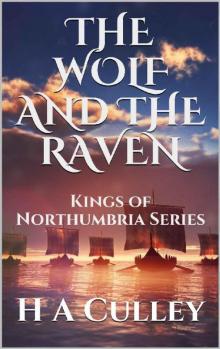 The Wolf and the Raven
The Wolf and the Raven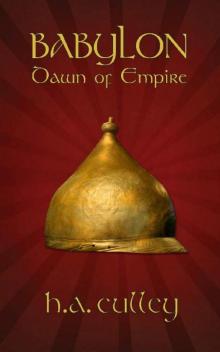 Dawn of Empire
Dawn of Empire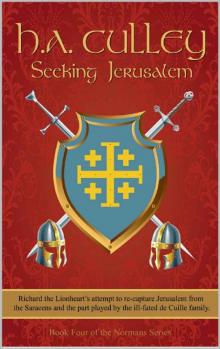 Seeking Jerusalem
Seeking Jerusalem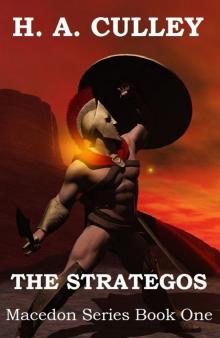 The Strategos
The Strategos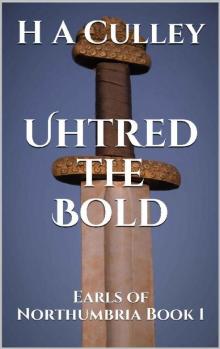 Uhtred the Bold
Uhtred the Bold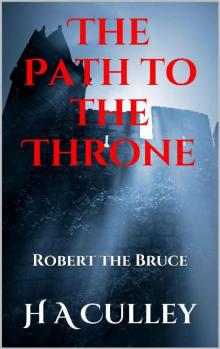 The Path to the Throne
The Path to the Throne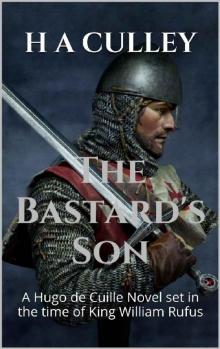 The Bastard's Son
The Bastard's Son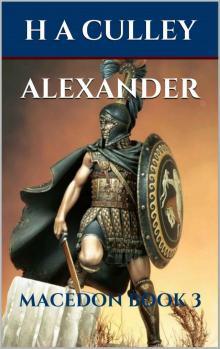 Alexander
Alexander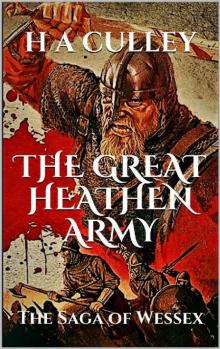 The Great Heathen Army
The Great Heathen Army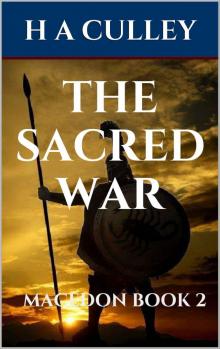 The Sacred War
The Sacred War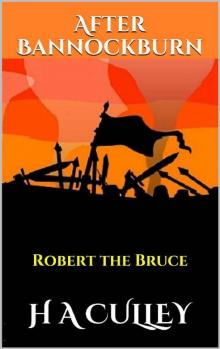 After Bannockburn
After Bannockburn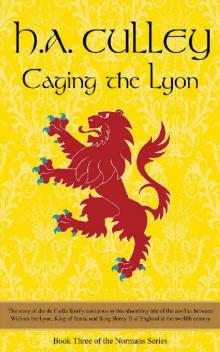 Caging the Lyon
Caging the Lyon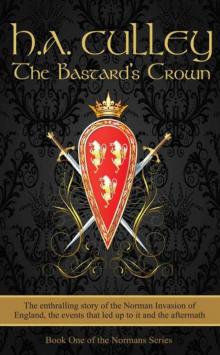 The Bastard's Crown
The Bastard's Crown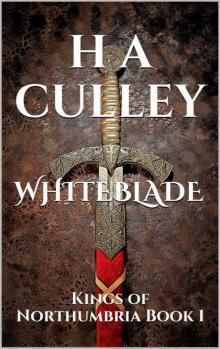 WHITEBLADE
WHITEBLADE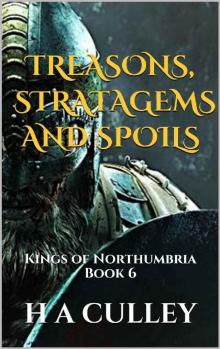 TREASONS, STRATAGEMS AND SPOILS: Kings of Northumbria Book 6
TREASONS, STRATAGEMS AND SPOILS: Kings of Northumbria Book 6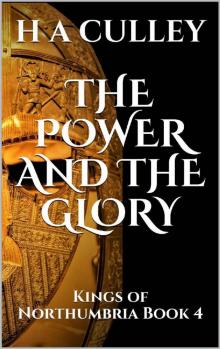 THE POWER AND THE GLORY: Kings of Northumbria Book 4
THE POWER AND THE GLORY: Kings of Northumbria Book 4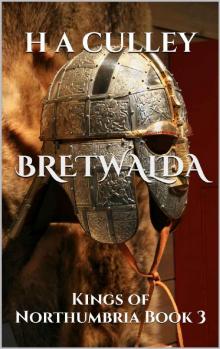 BRETWALDA: Kings of Northumbria Book 3
BRETWALDA: Kings of Northumbria Book 3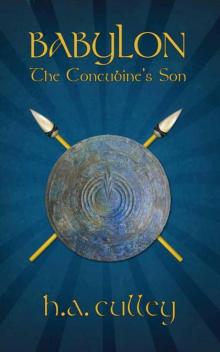 The Concubine's Son
The Concubine's Son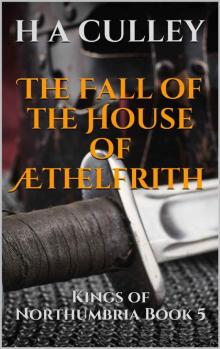 The Fall of the House of Æthelfrith: Kings of Northumbria Book 5
The Fall of the House of Æthelfrith: Kings of Northumbria Book 5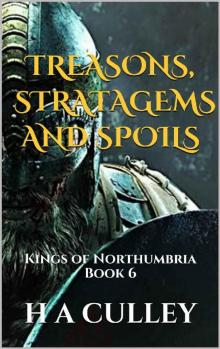 TREASONS, STRATAGEMS AND SPOILS
TREASONS, STRATAGEMS AND SPOILS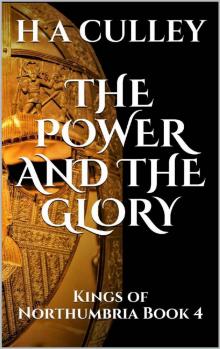 THE POWER AND THE GLORY
THE POWER AND THE GLORY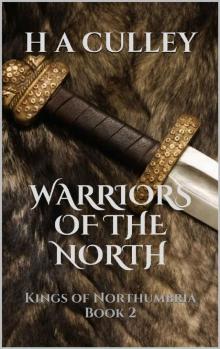 WARRIORS OF THE NORTH
WARRIORS OF THE NORTH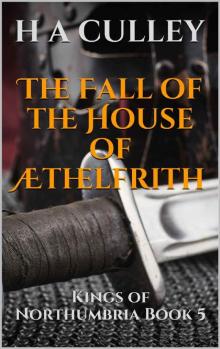 The Fall of the House of Æthelfrith
The Fall of the House of Æthelfrith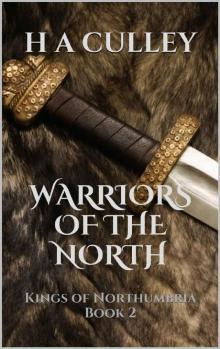 WARRIORS OF THE NORTH: Kings of Northumbria Book 2
WARRIORS OF THE NORTH: Kings of Northumbria Book 2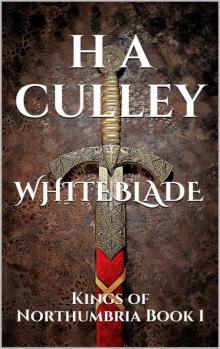 WHITEBLADE: Kings of Northumbria Book 1
WHITEBLADE: Kings of Northumbria Book 1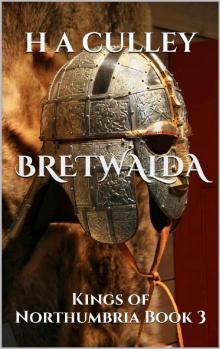 BRETWALDA
BRETWALDA